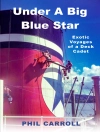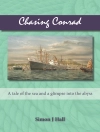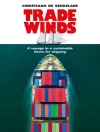The safe exchange of wounded or gravely ill prisoners of war, ‘protected personnel’ – medical staff and clergy – and diplomats, civilians and alien internees is a little known dimension of the Second World War, yet it was highly dangerous work. Here, David L. Williams tells the gripping story of some fifty mercy ships engaged in these repatriation voyages, each of the exchanges arranged individually between Allied nations and the Axis belligerents, through neutral intermediaries, and often conducted under the supervision of the International Red Cross. Sailing alone and undefended through hostile waters, and conspicuously illuminated at night, the ships were constantly in danger from submarine and aircraft, their safety depending totally on the transmission and receipt of ‘safe passage’ commands to the armed units in their paths. However, despite the risk of attack and severe loss of life, these exchange operations were essential for providing a lifeline to thousands of people caught up in a cruel and brutal war.
Over de auteur
DAVID L. WILLIAMS’s background is in professional industrial photography and technical publications. He was previously responsible for the entire aircraft and hovercraft in-service support operation of Westland Aerospace. He spent time working aboard lighthouse tenders and cable layers and is an Associate of the British Institute of Professional Photographers and member of the World Ship Society. He has written over 30 books on shipping and related subjects, including Great Passenger Ships that Never Were, Made on the Isle of Wight and Cabin Class Rivals for The History Press. He lives on the Isle of Wight.












